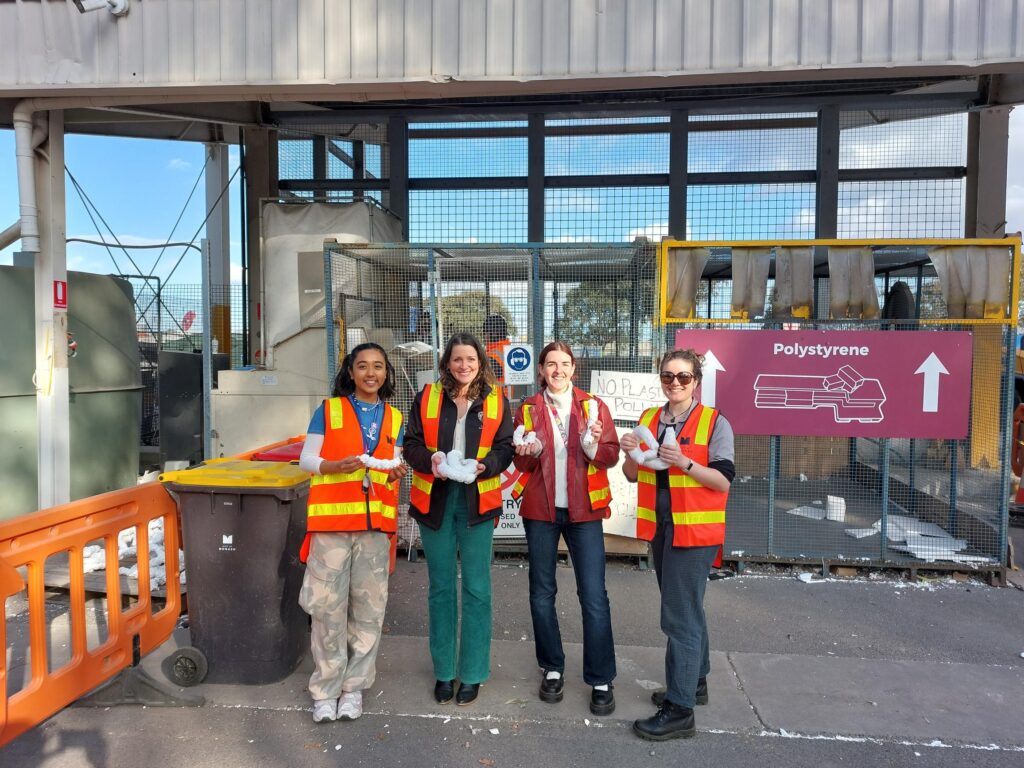[Naomi and Celina from Sustainable Monash, and Emma and Ashlee from EASL holding the raw materials produced from polystyrene recycling that is later turned into coat hangers or picture frames]
At the Eastern Alliance for Sustainable Learning (EASL), collaboration is key. On Thursday June 6th two of our ResourceSmart School Facilitators, Emma and Ashlee, were invited to tour the Monash Waste and Recycling Centre including a professional development session about recycling run by Sustainable Monash educators, Naomi and Celina.
The journey to sustainability is often clouded by confusion, especially in recycling. So, our facilitators were delighted to have this session with the Sustainable Monash team to clarify misconceptions about recycling and learn about common school contaminants.
The session started with an exchange of ideas and experience from both parties around optimising resources for schools, and sharing examples of how schools are leading the way in sustainable waste management. For instance, one Monash school has recently implemented a compost/worm farm system that processes all fruit and vegetable scraps, including those from the canteen, transforming waste into nutrient-rich soil. Another EASL school boasts a comprehensive 7 bin system, with highly dedicated staff leaders who oversee the entire lifecycle of waste, from collection to disposal. Other examples from EASL schools include excellent waste separation stations, actively involving students in the management process and fostering a circular economy by using the compost for kitchen gardens and Container Deposit Schemes (CDS). These examples highlight the proactive steps educational institutions are taking to reduce their environmental footprint and educate the next generation on the importance of waste management.
After the theoretical session the team moved on site for the tour. Did you know that even things like vapes, CDs, cassettes, cooking oil, polystyrene and even golf balls can be recycled! We encourage you to investigate what services your local Waste Transfer Station provides. A vital take away from this tour was the importance of responsible disposal of e-waste. If recycling and material recover facilities (MRF) burn down from battery fires it puts the whole system at risk.
These insights are crucial to not only educate but also inspire change and action within our network of schools.
Thank you to the Sustainable Monash team and Transfer Centre members for hosting EASL. Through continued collaborative efforts with councils across metro east, we can help bridge the gap between knowledge and action, making recycling and waste management an accessible reality for schools and the wider community.
Unsure about your school’s LGA waste and recycling resources? Visit our Waste Resources page for more information.

